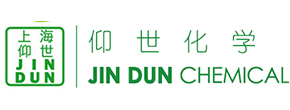The position of hydrogen energy in the global energy structure is gradually improving
2023/9/19
According to the Nihon Keizai Shimbun, Germany plans to open the world's first hydrogen exchange in 2024, while Japan is studying the mechanism for the government to pay part of production costs to promote the popularization of hydrogen energy.
Hydrogen combustion does not emit greenhouse gases, therefore it is considered an ideal decarbonization energy source. However, its high production costs have always been the main challenge hindering its popularization. The establishment of a hydrogen exchange is expected to drive the popularization of hydrogen energy by increasing trading volume and lowering prices.
The hydrogen trading market in Germany will be operated by Hintco, a group of over 50 European companies including steel giant ArcelorMittal and financial giant BNP Paribas. The operating system will be provided by the European Energy Exchange (EEX). The popularization of market transactions is expected to promote competition among enterprises and lower the cost of hydrogen energy. EEX calculates a price of 234 euros per megawatt hour based on the relative trading of hydrogen in Germany, while the natural gas indicator price within Europe is only 30 euros per megawatt hour.
According to data from the International Energy Agency, as of 2021, the proportion of hydrogen in global electricity generation is zero. However, significant changes in either side of supply and demand can easily lead to price fluctuations. There is also a risk of a sudden surge in hydrogen energy prices in the future.
In the UK, starting from 2022, the difference between the price of hydrogen sold by producers and the price of liquefied natural gas for power generation will be paid by the government. Japan is also studying aid measures to pay hydrogen producers the difference between hydrogen prices and existing energy prices.
According to Deloitte, the market size of "green hydrogen" that does not generate carbon dioxide during production will reach $640 billion by 2030 and further expand to $1.4 trillion by 2050. Bernhard Lorenz, the market management partner responsible for Germany, Switzerland, and Austria, pointed out that "over time, the economies of scale and government support formed by the expansion of usage will ultimately achieve balance of payments
Overall, countries around the world are actively promoting the development and application of hydrogen energy, and the establishment of a hydrogen exchange is undoubtedly an important step. In the future, with the advancement of technology and the promotion of policies, we have reason to believe that hydrogen energy will play a greater role in improving energy structure and addressing climate change.
JIN DUN CHEMICAL has built a special (meth) acrylic monomer manufacturing base in ZHEJIANG province. This makes sure the stable supply of HEMA, HPMA, HEA, HPA, GMA with high level quality. Our special acrylate monomers are widely used for thermosetting acrylic resins, crosslinkable emulsion polymers, acrylate anaerobic adhesive, two-component acrylate adhesive, solvent acrylate adhesive, emulsion acrylate adhesive, paper finishing agent and painting acrylic resins in adhesive.We have also developed the new and special (meth) acrylic monomers and derivatives. Such as the fluorinated acrylate monomers, It can be widely used in coating leveling agent, paints, inks, photosensitive resins, optical materials, fiber treatment, modifier for plastic or rubber field. We are aiming to be the top supplier in the field of special acrylate monomers, to share our rich experience with better quality products and professional service.

